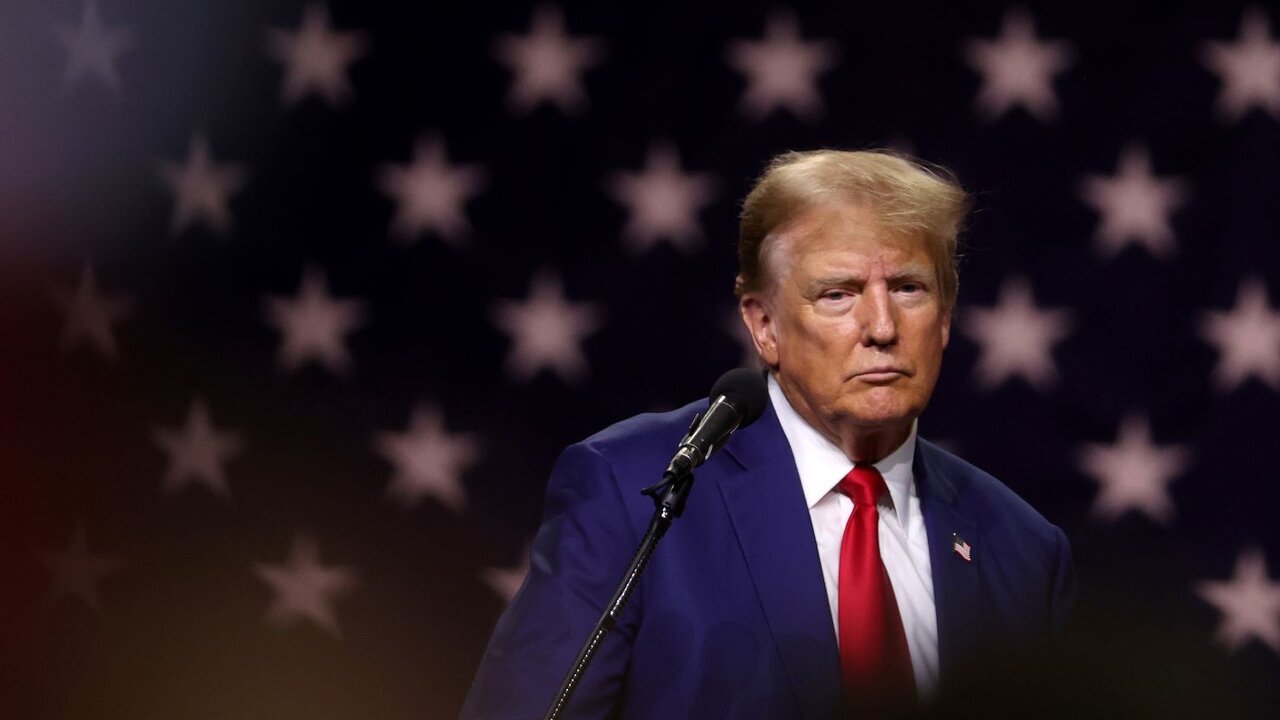Preparing for a return to power
The uncertainty of trump's foreign policy

MADRID – With Trump's experience in the White House between 2016 and 2020 and his complex relationship with Iran, his return could signal years of intense challenges for the Islamic Republic.
After taking office in 2016, Trump drastically reconfigured the relationship between Washington and Tehran: he pulled the U.S. out of the nuclear deal (JCPOA), imposed harsh economic sanctions on Iran, and ordered the assassination of General Qassem Soleimani in Iraq, pushing both countries to the brink of conflict.
Many analysts believe Iran may once again face a scenario similar to those critical years. In light of this, Tehran is redoubling its efforts to define a foreign policy strategy that will enable it to confront Trump’s potential return with a renewed perspective.
However, beyond Iran's preparation for this stage, the big question is: will this be the same Trump from a few years ago? Will he maintain his foreign policy intact? And ultimately, what principles and methods will guide his diplomacy in this new phase?
To address these questions, it is essential first to understand the "method" that defines Trump's diplomacy. This prior analysis is necessary to properly address the questions about the future of international relations under his potential second term.
During his first term, the U.S. president-elect replaced "multilateralism" and "integration" with a policy of "bilateralism." Rather than prioritizing global alliances and multilateral frameworks such as NATO, the United Nations, or transatlantic economic agreements, Trump opted to engage the U.S. in independent political and economic negotiations. This approach was consistent with his "America First" slogan, which was made clear during his first term.
During this period, Trump weakened NATO and, instead of viewing European or Gulf countries as strategic allies, primarily saw them as economic partners.
During that phase, Trump led the country to withdraw from significant international agreements, initiated a trade war with China, engaged in verbal confrontations with allies, and entered into complex negotiations with several of the U.S.'s rivals and enemies.
In his most recent electoral campaign, Trump promised to continue his efforts to significantly alter, or even block, international agreements, including the NATO security pact, which some experts believe could fundamentally weaken the U.S. position in the global order.
Among the positions announced by Trump on foreign policy, his protectionist trade plan is likely to be the most immediately damaging for Americans.
The proposed increase in tariffs could trigger a global trade war and raise prices for consumers in the United States.
In the long term, his views on the role of the U.S. in international affairs could undermine American diplomacy and weaken institutions that have been fundamental in supporting U.S. hegemony, such as NATO and the United Nations. These decisions could have lasting effects on the geopolitical landscape, similar to the actions taken during his first term.
Trump also withdrew the United States from the Paris Climate Agreement, a global pact that committed all signatories to reduce greenhouse gas emissions.
Other diplomatic setbacks during his tenure include the U.S. exit from the Intermediate-Range Nuclear Forces Treaty, a Cold War-era agreement between the U.S. and Russia that limited the development of short- and medium-range nuclear weapons.
Regarding the region, and particularly Iran, it is expected that the Trump administration will seek to put an end to Israel's active military campaigns in Gaza and Lebanon. However, this does not necessarily imply that Trump and his team are aiming for an agreement beneficial to the Palestinians or the Lebanese.
According to international policy experts, such as Mahdi Khanalizadeh, it is highly likely that in his second term, Trump will focus on strengthening the so-called Abraham Accords, a series of normalization agreements between Israel and several Arab countries.
For his part, Ghassan Khatib, a Palestinian political analyst, believes that Trump will likely continue supporting Netanyahu in his confrontations in Gaza, Lebanon, and possibly Syria, without allowing him to engage in a large-scale war with Iran.
In this context, Netanyahu may intensify actions against Iran, believing it is the perfect moment to do so. However, the Iranians could also decide that the time has come to retaliate against Israel.
One way to convince Trump that direct conflict with the Islamic Republic is not easy would be to send a strong message, possibly framed within an operation like "Operation True Promise III."
For now, Trump's first appointment has been Brian Hook, a hawkish figure from his first administration, who previously served under George W. Bush.
Hook has reportedly been tasked with beginning to recruit personnel for the State Department in this new phase.
Hook, who served as the U.S. Special Representative for Iran and advisor to Secretary of State Mike Pompeo during the last two years of Trump's presidency, played a key role during a period marked by the assassination of Iranian General Qassem Soleimani and the expansion of devastating sanctions, designed to provoke regime change in Iran.
It is still early to know what Trump's second term will look like regarding foreign policy, particularly his stance on Iran. Both the elected president and his vice president, JD Vance, have stated that a war with Iran is not in the interest of the United States. However, their ongoing policy shifts, as well as the appointment of Brian Hook—a declared advocate for open conflict with Iran—make any option possible for the future.
Leave a Comment